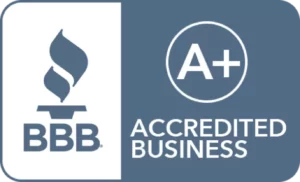We are in the midst of a student debt crisis. It’s hard to pinpoint one factor causing this, but it’s evident that student loan debt has reached staggering numbers. In the U.S., 44.2 million individuals are straddled with roughly $1.48 trillion in student debt.
Rising tuition fees are the primary cause, but there many other expenses. Along with tuition, students have to buy books and pay for the cost of room and board. Even student loan forgiveness, a loan repayment program designed to unburden students from financial woes, has become a contributor to the student debt crisis.
This increasing financial problem has many wondering how to can get a degree, avoid student debt and ensure retirement wealth.
How Far Will a Degree Take You Financially?
When you look at the fact that over 40 million individuals have an accumulated debt of $1.48 trillion, how far will your degree go? How much will you earn after you have graduated? Of course, there is no exact salary to answer that question, but let’s take a look at some numbers provided by Smart Assets:
If you obtain an Associates degree, your average salary will likely be around $42,000.
If you obtain a Bachelor’s degree, your average salary will likely be $60,000 during the course of your career.
There is a clear income difference between a bachelor’s degree and associates degree. Naturally, the higher education you receive, the higher your earnings. However, we can all agree that a higher income with both degrees would make student debt a little easier to stomach.
This leads us to yet another important question:
Is There a Better Option?
Attend the Most Affordable School
Is acquiring a degree really worth the strain of having student debt? Maybe not, but in the end it’s up to you to make that decision. If you have the opportunity to get into one of the top 50 universities in the country, such as Harvard, then it may be worthwhile to attend, despite the astronomical tuition fees. Top 50 schools have more weight in the corporate world and provide graduates with priceless connections, ultimately giving them an edge within their field.
But if you aren’t accepted into a top 50 school, and your profession requires that you earn a degree, don’t choose the most expensive school.
Let us say you have the chance to attend the University of Miami or University of Florida. Yes, University of Miami is a good school, but consider its tuition: $51,930 in 2019. Compare that to University of Florida’s 2019 tuition which does not exceed $28,658. You will still get the same degree in the major of your choice, without becoming yet another statistic in America’s student debt crisis.
So, which University would you choose?
Consider Your Profession – This is Important
It’s true that you will earn more if you obtain a higher degree, as seen above. But you may not need a degree in the first place. There are many professions that enable individuals to become self-taught in a few years rather than taking the traditional route of attending a four year University. In certain professions, such as social media marketing, you are likely to find a good job with a satisfying salary.
Do your research – is your profession one that requires a college education? If the answer is no, imagine what you can do with the money you would otherwise spend on tuition.
Saving for Retirement
One thing you can do with that extra money is begin saving for retirement. It is so important to save for retirement, yet it isn’t a subject taught in school. The U.S. government has given all of us an opportunity to generate real wealth by the time we reach retirement. That’s right: you have the ability to make millions by the time you reach retirement thanks to the power of tax deferral, or compounded returns. The U.S. retirement system is the best way to take advantage of compounded returns.
How Much You Could Put Towards Retirement
We have provided you with student debt numbers, now we’ll provide numbers assuming you do not go to college.
Let us assume you are able to save $200 each month, beginning at age 22. Let us further assume you generate an eight percent rate of return (below average rate). By the time you turn 70, you will have $1.27 million tax-free if you open a Roth IRA or Self-Directed Roth IRA. Now let us assume you started even earlier, at age 18. By the time you reach age 70, you will have $1.74 million at retirement. You barely have to do anything except make small, consistent contributions and trust the process of tax-deferral. And these are very conservative numbers we’re showing you.
Conclusion
Education is important, but it’s also important to be realistic with your money. By saving a few hundred dollars a month, you may end up richer than if you had gone to an expensive University. If you go to college, make sure to choose the least expensive school. Your work etiquette once you join the corporate world will guarantee your success more than your degree.











